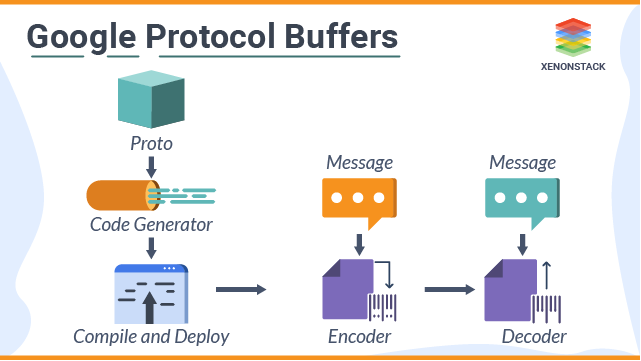Spring Boot集成protobuf快速入门Demo
1.什么是protobuf?
Protobuf(Protocol Buffers)是由 Google 开发的一种轻量级、高效的数据交换格式,它被用于结构化数据的序列化、反序列化和传输。相比于 XML 和 JSON 等文本格式,Protobuf 具有更小的数据体积、更快的解析速度和更强的可扩展性。 Protobuf 的核心思想是使用协议(Protocol)来定义数据的结构和编码方式。使用 Protobuf,可以先定义数据的结构和各字段的类型、字段等信息,然后使用 Protobuf 提供的编译器生成对应的代码,用于序列化和反序列化数据。由于 Protobuf 是基于二进制编码的,因此可以在数据传输和存储中实现更高效的数据交换,同时也可以跨语言使用。
Protobuf 有以下几个优势:
- 更小的数据量:Protobuf 的二进制编码通常只有 XML 和 JSON 的 1/3 到 1/10 左右,因此在网络传输和存储数据时可以节省带宽和存储空间。
- 更快的序列化和反序列化速度:由于 Protobuf 使用二进制格式,所以序列化和反序列化速度比 XML 和 JSON 快得多。
- 跨语言:Protobuf 支持多种编程语言,可以使用不同的编程语言来编写客户端和服务端。这种跨语言的特性使得 Protobuf 受到很多开发者的欢迎(JSON 也是如此)。
- 易于维护可扩展:Protobuf 使用 .proto 文件定义数据模型和数据格式,这种文件比 XML 和 JSON 更容易阅读和维护,且可以在不破坏原有协议的基础上,轻松添加或删除字段,实现版本升级和兼容性。
2.代码工程
实验目标
rest api实现基于Protobuf 协议通信
pom.xml
<?xml version="1.0" encoding="UTF-8"?>
<project xmlns="http://maven.apache.org/POM/4.0.0"
xmlns:xsi="http://www.w3.org/2001/XMLSchema-instance"
xsi:schemaLocation="http://maven.apache.org/POM/4.0.0 http://maven.apache.org/xsd/maven-4.0.0.xsd">
<parent>
<groupId>org.springframework.boot</groupId>
<artifactId>spring-boot-starter-parent</artifactId>
<version>3.2.1</version>
</parent>
<modelVersion>4.0.0</modelVersion>
<artifactId>protobuf</artifactId>
<properties>
<maven.compiler.source>17</maven.compiler.source>
<maven.compiler.target>17</maven.compiler.target>
</properties>
<dependencies>
<dependency>
<groupId>org.springframework.boot</groupId>
<artifactId>spring-boot-starter-web</artifactId>
</dependency>
<dependency>
<groupId>org.springframework.boot</groupId>
<artifactId>spring-boot-starter-test</artifactId>
<scope>test</scope>
</dependency>
<dependency>
<groupId>org.springframework.boot</groupId>
<artifactId>spring-boot-autoconfigure</artifactId>
</dependency>
<dependency>
<groupId>com.google.protobuf</groupId>
<artifactId>protobuf-java</artifactId>
<version>3.19.2</version>
</dependency>
<dependency>
<groupId>org.springframework.boot</groupId>
<artifactId>spring-boot-test</artifactId>
<scope>test</scope>
</dependency>
</dependencies>
<build>
<extensions>
<extension>
<groupId>kr.motd.maven</groupId>
<artifactId>os-maven-plugin</artifactId>
<version>1.6.1</version>
</extension>
</extensions>
<plugins>
<plugin>
<groupId>org.xolstice.maven.plugins</groupId>
<artifactId>protobuf-maven-plugin</artifactId>
<version>0.6.1</version>
<configuration>
<protoSourceRoot>${basedir}/src/main/resources</protoSourceRoot>
<protocArtifact>com.google.protobuf:protoc:3.19.1:exe:${os.detected.classifier}</protocArtifact>
<pluginArtifact>io.grpc:protoc-gen-grpc-java:1.43.1:exe:${os.detected.classifier}</pluginArtifact>
<outputDirectory>src/main/java</outputDirectory>
<clearOutputDirectory>false</clearOutputDirectory>
<pluginId>grpc-java</pluginId>
</configuration>
<executions>
<execution>
<goals>
<goal>compile</goal>
<goal>compile-custom</goal>
</goals>
</execution>
</executions>
</plugin>
<plugin>
<groupId>org.springframework.boot</groupId>
<artifactId>spring-boot-maven-plugin</artifactId>
</plugin>
</plugins>
</build>
</project>controller
package com.et.protobuf.controller;
import com.et.protobuf.PhoneNumJson;
import com.et.protobuf.ProtobufMessage;
import com.et.protobuf.StudentJson;
import org.springframework.web.bind.annotation.PathVariable;
import org.springframework.web.bind.annotation.RequestMapping;
import org.springframework.web.bind.annotation.RestController;
import java.util.ArrayList;
import java.util.HashMap;
import java.util.List;
import java.util.Map;
@RestController
public class HelloWorldController {
@RequestMapping("/json/{id}")
public StudentJson showHelloWorld(@PathVariable Integer id){
StudentJson studentJson = new StudentJson();
studentJson.setId(id);
studentJson.setFirstName("maxsm");
studentJson.setLastName("sdfsdfsdfsdfsdfsdsdfsdfsdfsdfsdfsdfsdfsdf");
studentJson.setEmail("1224sdfsfsdf344552@163.com");
PhoneNumJson phoneNumJson = new PhoneNumJson();
phoneNumJson.setNumber("12345sdfsdfsd6566666");
phoneNumJson.setType(1);
List<PhoneNumJson> list = new ArrayList<>();
list.add(phoneNumJson);
studentJson.setPhoneNumList(list);
return studentJson;
}
@RequestMapping("/protobuf/{id}")
ProtobufMessage.Student protobuf(@PathVariable Integer id) {
return ProtobufMessage.Student.newBuilder().setId(id).setFirstName("maxsm")
.setLastName("sdfsdfsdfsdfsdfsdsdfsdfsdfsdfsdfsdfsdfsdf")
.setEmail("1224sdfsfsdf344552@163.com")
.addPhone(ProtobufMessage.Student.PhoneNumber.newBuilder().setNumber("12345sdfsdfsd6566666").setType(
ProtobufMessage.Student.PhoneType.MOBILE).build()).build();
}
}entity
package com.et.protobuf;
import java.util.List;
/**
* @author liuhaihua
* @version 1.0
* @ClassName StudentJson
* @Description todo
* @date 2024/08/05/ 16:32
*/
public class StudentJson {
private int id;
private String firstName;
private String lastName;
private String email;
private List<PhoneNumJson> phoneNumList;
public int getId() {
return id;
}
public void setId(int id) {
this.id = id;
}
public String getFirstName() {
return firstName;
}
public void setFirstName(String firstName) {
this.firstName = firstName;
}
public String getLastName() {
return lastName;
}
public void setLastName(String lastName) {
this.lastName = lastName;
}
public String getEmail() {
return email;
}
public void setEmail(String email) {
this.email = email;
}
public List<PhoneNumJson> getPhoneNumList() {
return phoneNumList;
}
public void setPhoneNumList(List<PhoneNumJson> phoneNumList) {
this.phoneNumList = phoneNumList;
}
}package com.et.protobuf;
/**
* @author liuhaihua
* @version 1.0
* @ClassName PhoneNum
* @Description todo
* @date 2024/08/05/ 16:35
*/
public class PhoneNumJson {
private int type;
private String number;
public int getType() {
return type;
}
public void setType(int type) {
this.type = type;
}
public String getNumber() {
return number;
}
public void setNumber(String number) {
this.number = number;
}
}mxsm.proto
使用 Protobuf 的语言定义文件(.proto)可以定义要传输的信息的数据结构,可以包括各个字段的名称、类型等信息。同时也可以相互嵌套组合,构造出更加复杂的消息结构。syntax = "proto3";
package mxsm;
option java_package = "com.et.protobuf";
option java_outer_classname = "ProtobufMessage";
message Course {
int32 id = 1;
string course_name = 2;
repeated Student student = 3;
}
message Student {
int32 id = 1;
string first_name = 2;
string last_name = 3;
string email = 4;
repeated PhoneNumber phone = 5;
message PhoneNumber {
string number = 1;
PhoneType type = 2;
}
enum PhoneType {
MOBILE = 0;
LANDLINE = 1;
}
}头部全局定义
syntax = "proto3";指定 Protobuf 版本为版本 3(最新版本)package com.wdbyte.protobuf;指定 Protobuf 包名,防止有相同类名的message定义,这个包名是生成的类中所用到的一些信息的前缀,并非类所在包。option java_multiple_files = true;是否生成多个文件。若false,则只会生成一个类,其他类以内部类形式提供。option java_package =生成的类所在包。option java_outer_classname生成的类名,若无,自动使用文件名进行驼峰转换来为类命名。
消息结构具体定义
message Person 定一个了一个 Person 类。
Person 类中的字段被 optional 修饰,被 optional 修饰说明字段可以不赋值。
- 修饰符
optional表示可选字段,可以不赋值。 - 修饰符
repeated表示数据重复多个,如数组,如 List。 - 修饰符
required表示必要字段,必须给值,否则会报错RuntimeException,但是在 Protobuf 版本 3 中被移除。即使在版本 2 中也应该慎用,因为一旦定义,很难更改。
字段类型定义
修饰符后面紧跟的是字段类型,如int32 、string。常用的类型如下:
int32、int64、uint32、uint64:整数类型,包括有符号和无符号类型。float、double:浮点数类型。bool:布尔类型,只有两个值,true 和 false。string:字符串类型。bytes:二进制数据类型。enum:枚举类型,枚举值可以是整数或字符串。message:消息类型,可以嵌套其他消息类型,类似于结构体。
=1,=2 是作为序列化后的二进制编码中的字段的对应标签,因为 Protobuf 消息在序列化后是不包含字段信息的,只有对应的字段序号,所以节省了空间。也因此,1-15 比 16 会少一个字节,所以尽量使用 1-15 来指定常用字段。且一旦定义,不要随意更改,否则可能会对不上序列化信息。
config
package com.et.protobuf.config;
import org.springframework.context.annotation.Bean;
import org.springframework.context.annotation.Configuration;
import org.springframework.http.converter.protobuf.ProtobufHttpMessageConverter;
import org.springframework.web.client.RestTemplate;
import java.util.Arrays;
@Configuration
public class Config {
@Bean
RestTemplate restTemplate(ProtobufHttpMessageConverter hmc) {
return new RestTemplate(Arrays.asList(hmc));
}
@Bean
ProtobufHttpMessageConverter protobufHttpMessageConverter() {
return new ProtobufHttpMessageConverter();
}
}代码仓库
3.测试
启动Spring Boot应用编写测试类
package com.et.protobuf;
import org.junit.jupiter.api.Test;
import org.springframework.beans.factory.annotation.Autowired;
import org.springframework.boot.test.context.SpringBootTest;
import org.springframework.http.ResponseEntity;
import org.springframework.http.converter.HttpMessageConverter;
import org.springframework.http.converter.protobuf.ProtobufHttpMessageConverter;
import org.springframework.web.client.RestTemplate;
import java.util.ArrayList;
import java.util.List;
@SpringBootTest(classes = DemoApplication.class)
public class ApplicationTest {
// Other declarations
private static final String COURSE1_URL = "http://localhost:8088/protobuf/1";
@Autowired
private RestTemplate restTemplate ;
@Test
public void whenUsingRestTemplate_thenSucceed() {
ResponseEntity<ProtobufMessage.Student> student = restTemplate.getForEntity(COURSE1_URL, ProtobufMessage.Student.class);
System.out.println(student.toString());
}
}<200 OK OK,id: 1
first_name: "maxsm"
last_name: "sdfsdfsdfsdfsdfsdsdfsdfsdfsdfsdfsdfsdfsdf"
email: "1224sdfsfsdf344552@163.com"
phone {
number: "12345sdfsdfsd6566666"
}
,[X-Protobuf-Schema:"mxsm.proto", X-Protobuf-Message:"mxsm.Student", Content-Type:"application/x-protobuf;charset=UTF-8", Transfer-Encoding:"chunked", Date:"Mon, 05 Aug 2024 09:10:55 GMT", Keep-Alive:"timeout=60", Connection:"keep-alive"]>Json和protobuf性能比较
单个线程,循环1分钟
 测试结果发现json性能甚至优于protobuf,并不符合预期结果!是我哪一步整错了吗?有大神知道怎么回事吗?
测试结果发现json性能甚至优于protobuf,并不符合预期结果!是我哪一步整错了吗?有大神知道怎么回事吗?
4.引用
正文到此结束
- 本文标签: protobuf Spring Boot
- 版权声明: 本文由HARRIES原创发布,转载请遵循《署名-非商业性使用-相同方式共享 4.0 国际 (CC BY-NC-SA 4.0)》许可协议授权
- 本文海报: 生成海报一 生成海报二
热门推荐
相关文章
Loading...











![[HBLOG]公众号](https://www.liuhaihua.cn/img/qrcode_gzh.jpg)

